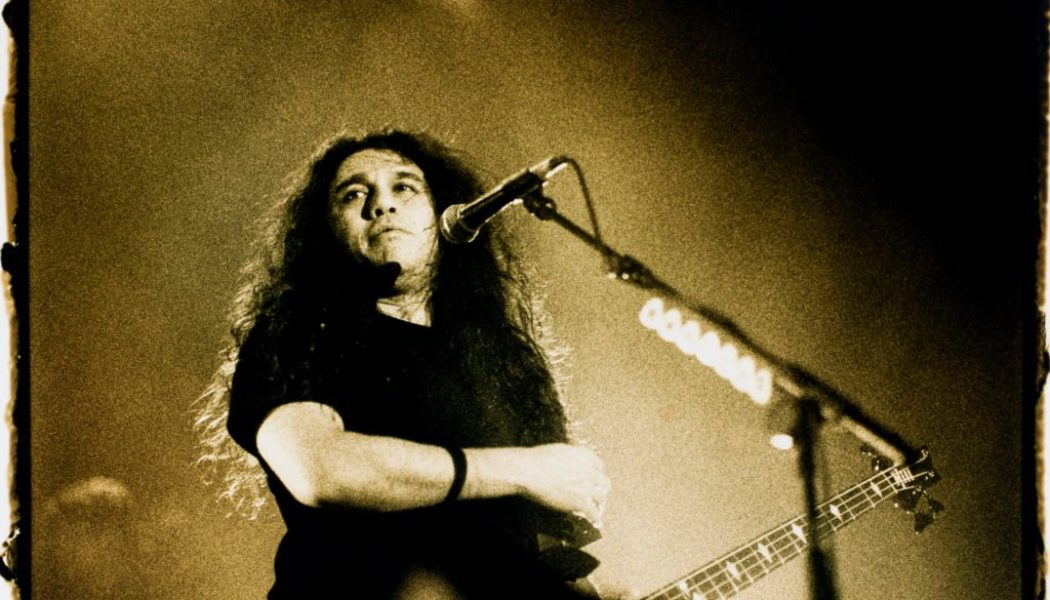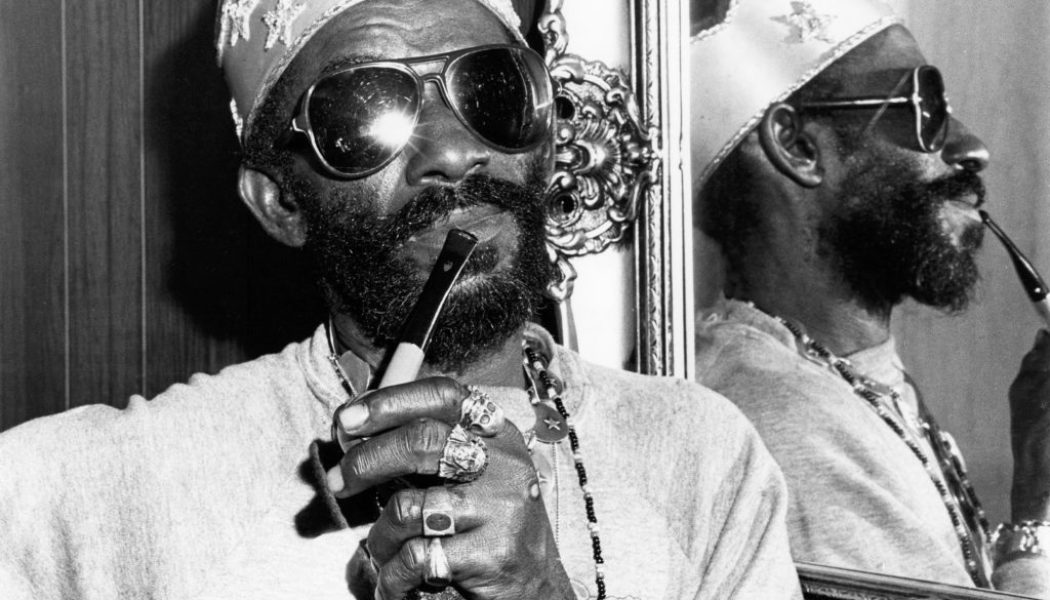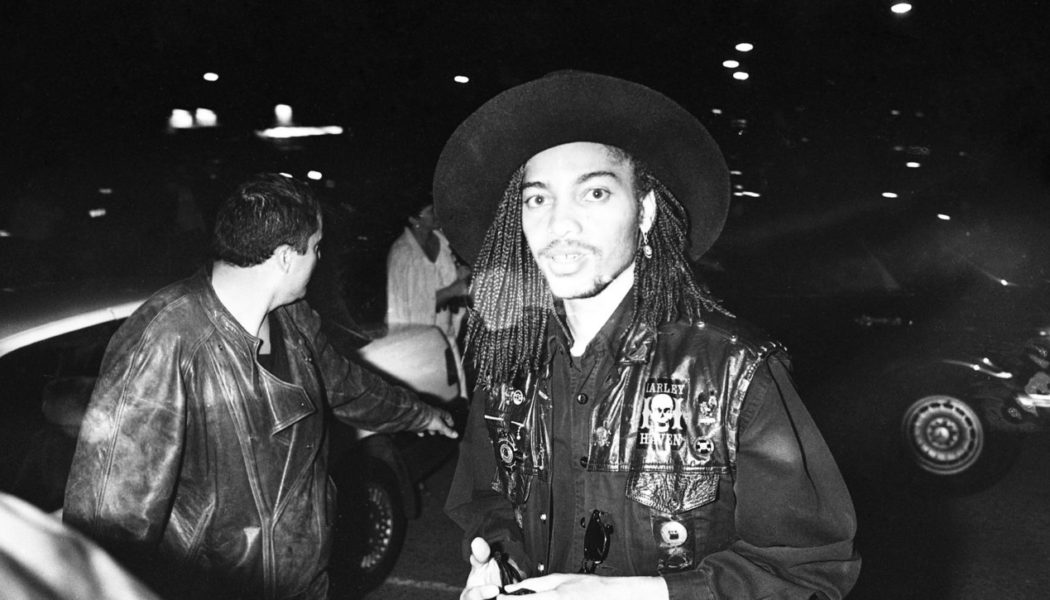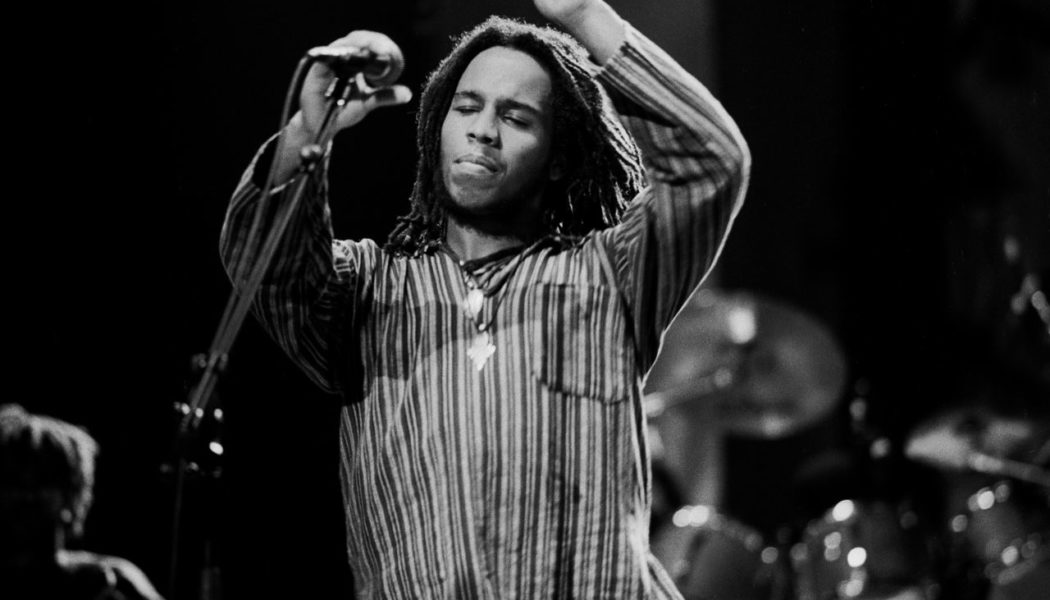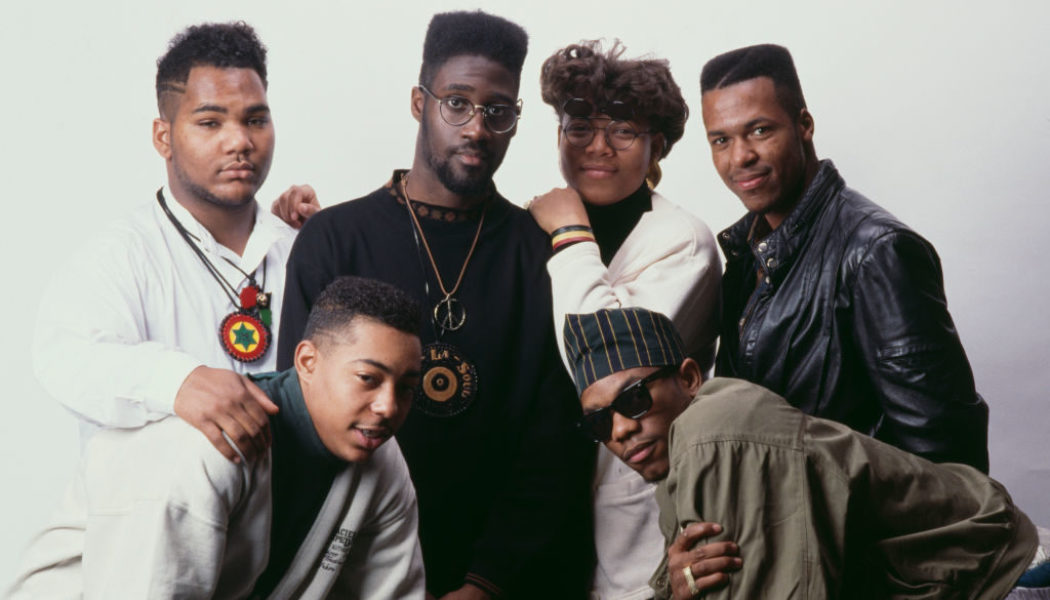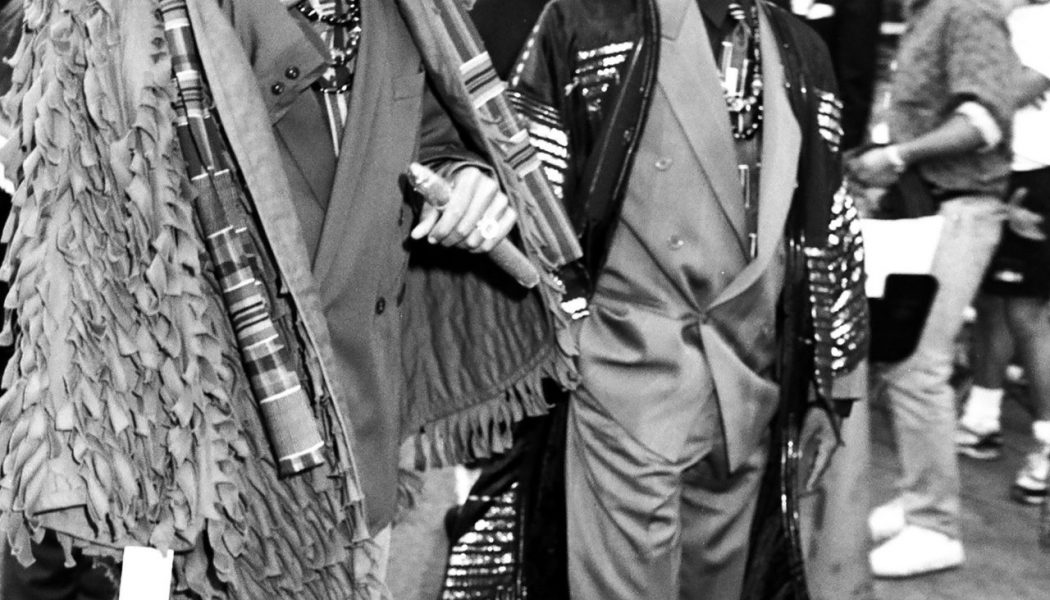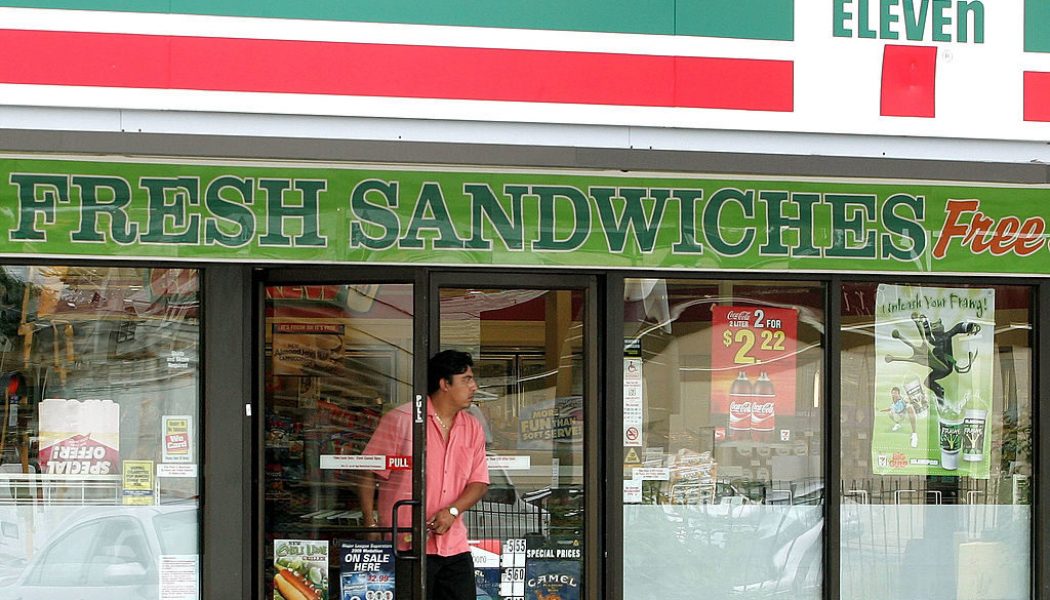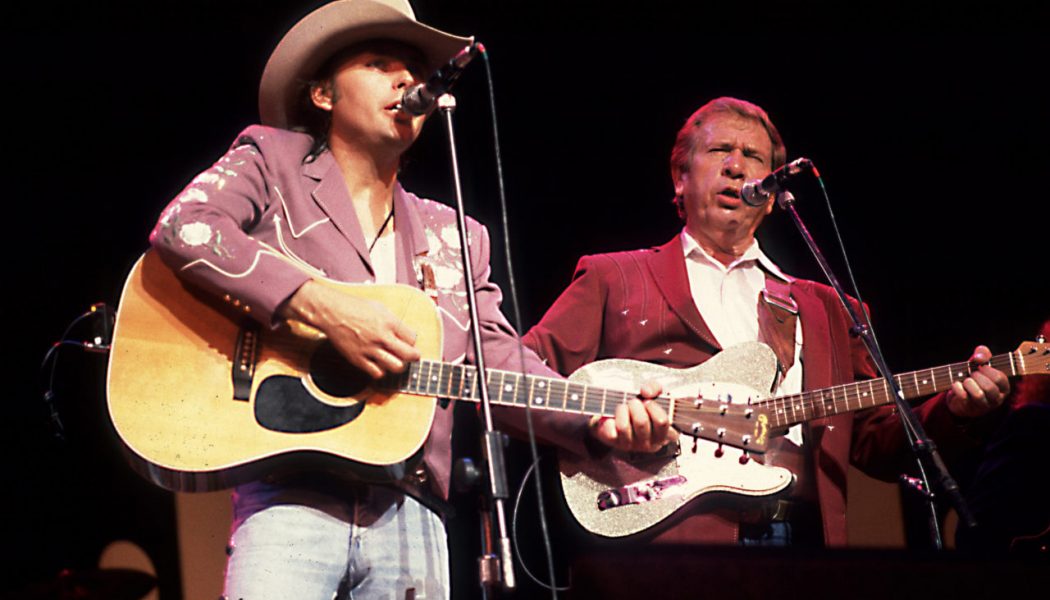1980s
Der Kommissar: Our 1986 Boris Becker Feature
This article originally appeared in the January 1986 issue of SPIN. Ion Tiriac, tennis’ Transylvanian terror, who claims to be related to Count Dracula, is Boris Becker‘s manager. Immediately following the 17-year-old West German’s historic Wimbledon victory, Ion was heard to tell Becker, “Your life is over. You are born again with me.” In his spare time, Ion, whom Ilie Nastase calls a “tough guy,” eats shards of glass. Asked what kind of circumstances could provoke such dramatic displays, he says, “You use toothpaste? Toothpaste made from powder, powder made from sand, glass made from sand.” Yes, Ion, but what about your digestive tract? “You don’t digest, just eliminate.” It’s mid-September, and Tiriac’s been stuck in Oklahoma for three days for the so-called Tulsa Challenge tennis...
Lunch with Benatar: Our 1985 Pat Benatar Cover Story
A version of this article originally appeared in the September 1985 issue of SPIN. In honor of the announcement of Pat Benatar‘s induction into the Rock and Roll Hall of Fame, we’re republishing it here. Ballsy! Gutsy! Bitchy! One hard-rockin’ mama, right? The little girl with the big-big mouth. The girl who invented black tights and short-shorts. The wet dream of every honest, hard-working, beer-guzzling, God-fearing, red-blooded, normal white male this side of the Rio Grande River, huh, folks. Gimme a break, assholes. Let’s start at scratch and work our way back. Pat Benatar began her career as a singing waitress in the NYC comedy club Catch a Rising Star. She was conveniently discovered by the proprietor, who went on to become her manager, just like in the movies. Only I never go t...
Desperately Seeking Satan: Our 1989 Slayer Feature
This article originally appeared in the May 1989 issue of SPIN. I do a talk show called “TALK-BACK with Bob Larson,” syndicated in nearly 200 markets. Not just any talk show. A religious talk show that presents the Christian perspective on topics ranging from sex to suicide, racism to rock ‘n’ roll. I’m a Christian. The born-again kind. That means I believe Jesus Christ is the Son of God, who died for our sins and rose again from the dead to give us the gift of eternal life. They play in a heavy metal rock band. Not just any metal band. A black/thrash/speed metal band with lyrics describing sex with corpses and songs offering prayers of praise to Satan. Which presumably means they are Satanists. Why else would Slayer sing, “Warriors from the gates of hell/In Lord Satan we trust” (“Show No ...
Reggae’s Mad Scientist: Our 1985 Feature on Lee ‘Scratch’ Perry
This article was originally published in the May 1985 issue of SPIN. In light of Perry’s death, we’re republishing it here. When people said to Bob Marley that his friend Lee “Scratch” Perry was mad, Marley would reply, “Him not mad, him just Scratch.” They were not always persuaded. Indeed, one of Mr. Perry’s several epithets is “The Mad Scientist,” which took on its true meaning when he trashed his Black Art recording studios in Kingston, Jamaica, and spent several months planting small black crosses on every available square inch of his property. He also changed his name to Pipecock Jackson for a short time and for no apparent reason. “It’s great to be mad . . . it’s a pleasure,” cackles Lee. We are squashed together in the tiny back room of a North London record shop, drinking cooking ...
On The Road Again: Our 1989 Rolling Stones Cover Story
This article originally appeared in the December 1989 issue of SPIN. In light of Charlie Watts’ death, we’re republishing it here. Ian Stewart, 1975: The Beatles… I think they are nice lads who wrote pretty songs, but they are horribly overrated. In fact, most of the Liverpool groups were overrated, they were all musically inept completely. Some of them could sing, but they could never play their instruments. You could count the number of good musicians who came out of Liverpool on one hand. By 1964, the Stones took off, and it was obvious that they were going to have the same kind of following that the Beatles had got. But Andrew [Loog Oldham, the Beatles’ publicist and the Rolling Stones’ first manager] thought they couldn’t go on playing Muddy Waters material and maintain it,...
Son of a Preacher Man: Our 1989 Terence Trent D’Arby Cover Story
This article originally appeared in the October 1989 issue of SPIN. At 8:30 in the morning, the interview finally over, Terence Trent D’Arby still wants to talk. The English sun, such as it is, has begun to trickle in through the windows of his Knightsbridge townhouse, and turned the streets outside, a quiet neighborhood of “doctors and arms dealers,” according to D’Arby, from a slate gray to the chalky color of a forgotten cup of coffee. Another London summer day is just beginning. D’Arby’s girlfriend, Mary, and their seven-and-a-half-month-old daughter, Sarafina, have already come downstairs for the morning. “Would you stay for breakfast?” he asks, addressing both me and the CBS vice president in charge of publicity, Marilyn Laverty, who has waited on a cotton sofa ...
It’s Only Roth ‘N’ Roll: Our 1986 David Lee Roth Cover Story
A version of this story was published in the April 1986 issue of SPIN. In honor of the 35th anniversary of Eat ‘Em and Smile, we’re republishing this article here. In another life, David Lee Roth was Attila the Hun. He led a bunch of barbarians—who looked curiously like Van Halen—around the world, sacking and pillaging as they went. In yet another life, David Lee Roth was Jesse James. His heroes include Muhammad Ali and Ray Kroc. He got his first radio from his uncle Dave when he was 8, and from that time on, he knew what he wanted to do. He would lay in bed, the radio across the room, a stick taped to the dial so he wouldn’t have to get out of bed to change stations. He met the other members of Van Halen about 10 years later. Their debut album went gold three months after it came out...
The Hard Line According to Ziggy Marley: Our 1989 Feature
This article originally appeared in the October 1989 issue of SPIN. He looks a lot more like his mother. He’s got Rita’s apple cheeks and dimples, and a flirtatious, almost girlish smile. No intimidating stares, no tough ras sass, no prophetic, heavy-lidded ganja nods. Still, you can’t help playing the Famous Son game, studying his face for traces of the father whose brooding, angular, saint-like portrait graces West Indian dwellings from Kingston to the United Kingdom. Meanwhile, this bright-eyed Jamaican 20-year-old dressed in sweats and snazzy athletic boots, a graduate of one of his country’s most rigorous preparatory schools, keeps a soccer ball bobbing at his feet. “Me is Ziggy,” he shrugs offhandedly when asked the question he’s probably sick of answering. “Me is my own self. Not me...
Bite This: Our 1989 Feature on Sampling
This article originally appeared in the November 1989 issue of SPIN. On De La Soul’s million-selling debut Three Feet High And Rising is one minute and 11 seconds of bugging out entitled “Transmitting Live From Mars.” Album filler (the Long Island hip hop trio doesn’t even rap on the cut), the song is basically nothing more than a sample of a French lesson floated over a tape loop of the first four bars of the Turtles’ 1969 pop hit “You Showed Me” with some drum beats added underneath. “Transmitting Live From Mars” is a goof, but former Turtles Flo and Eddie are not amused. They’ve filed suit against De La Soul and Tommy Boy—their record company—for $1.7 million in punitive damages. “This isn’t just a financial objection,” says Flo and Eddie’s lawyer Evan Cohen. “Flo and Eddie are genuinel...
Rock the Art House: Our 1989 Digital Underground Feature
This article originally appeared in the November 1989 issue of SPIN. In light of Shock G’s death, we’re republishing it here. “Say it loud, I’m arty and I’m proud,” because 1989 is the year of the boho homeboy. Back in the “who’s bigger and deffer” days, hip hop was fiercely competitive, more akin to sport than art; these days beyond def is the place to be. Unabashed experimental creativity—heavily influenced by George Clinton’s mid-70s costume funk revues—is making a big comeback. The Jungle Brothers, De La Soul, and Queens’ A Tribe Called Quest set the tone, but Oakland, California’s Digital Underground are now carrying the hip hop arthouse swing. “Digital refers to the fact that we lean towards the techno end of hip hop,” says DU’s chief polemicist Shock G. “Underground ...
Thank Heaven for 7-11: Henry Rollins’ 1985 Homage to the Convenience Store
This article originally appeared in the June 1985 issue of SPIN. Hey you. Yeah, you—come here a second, I wanna talk to you. Look, I don’t know you, you don’t know me, we don’t go to the same parties, never tubbed together. I know you think I’m some kind of weirdo, but listen… I bet, just bet, you and I have one thing in common, one thing that unites us, one thing that will allow us to look each other in the eyes and feel right. Yes, friend…7-11. They’re in your town, they’re in my town, we have both seen the orange, white and green beacon against the night sky. What’s your thing? Coffee, video games, microwave food? You want somethin’? They got somethin’ you want, and that is good. I ventured into my first 7-11 during the summer of 1968. That was back in the days when said establishm...
Dwight Yoakam and Buck Owens in Conversation: Our 1988 Feature
This article was originally published in the December 1988 issue of SPIN. We’re republishing this on the 15th anniversary of Owens’ death. Buck Owens has spent the last few years looking after business in Bakersfield, California, back again where his career began. When country music went slick in the ’70s, Buck let it alone—and for the last decade or so, he’s been remembered by most people as the grinning face they saw when they clicked the channel past the “Hee-Haw” reruns. <!– // Brid Player Singles. var _bp = _bp||[]; _bp.push({ “div”: “Brid_10143537”, “obj”: {“id”:”25115″,”width”:”480″,”height”:”270″,”playlist”:”10315″,&...
- 1
- 2




